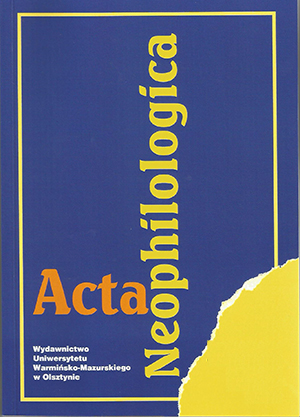Comedy’s social (ir)responsibility: Saturday Night Live’s response to Donald Sterling scandal
Comedy’s social (ir)responsibility: Saturday Night Live’s response to Donald Sterling scandal
Author(s): Tomasz JachećSubject(s): Social Sciences, Language and Literature Studies, Media studies, Communication studies
Published by: Wydawnictwo Uniwersytetu Warmińsko-Mazurskiego w Olsztynie
Keywords: comedy; satire; humor; semantic scripts; GTVH; racial profiling; Saturday Night Live
Summary/Abstract: In April 2014, an American network TMZ released recordings of a telephoneconversation between Donald Sterling (the then-owner of the NBA’s Los AngelesClippers franchise) and his mistress Vanessa Stiviano. In the conversation Sterlingmade a number of racist remarks while criticizing Stiviano for posting a photo of herselfand Earvin Magic Johnson (African-American, former star of Los Angeles Lakers) onInstagram. What followed was a torrent of criticism towards Sterling, a life-time banfrom the NBA and a $2.5 million fine imposed upon Clippers owner by newly appointedNBA commissioner Adam Silver, national debate on racism in sports dominated by blackathletes, and Sterling’s continuous controversial public announcements. In the heatof the scandal, Sterling was scrutinized, condemned and ridiculed in countless pressarticles, radio broadcasts, and television shows – among others Saturday Night Live.The SNL episode that aired on May 3rd, 2014 opened with a parody of press conferenceorganized by Adam Silver and Donald Sterling. This sketch, as well as other sketches,performed that night featured a number of African-American characters. The obviousintent of the episode’s jokes was to contribute to the criticism of Sterling in a humorousfashion. However, an analysis, based on Raskin, Attardo and Willibald’s General Theoryof Verbal Humor (GTVH), reveals a hypertext hidden within a juxtaposition of thenegative images of African-Americans and the positive images of whites presented inthe episode. The abovementioned hypertext poses a question on the social responsibilityof the comedians who, when creating ‘controversial’ material, operate in a culturallybiased context.
Journal: Acta Neophilologica
- Issue Year: 1/2016
- Issue No: XVIII
- Page Range: 67-86
- Page Count: 20
- Language: English

